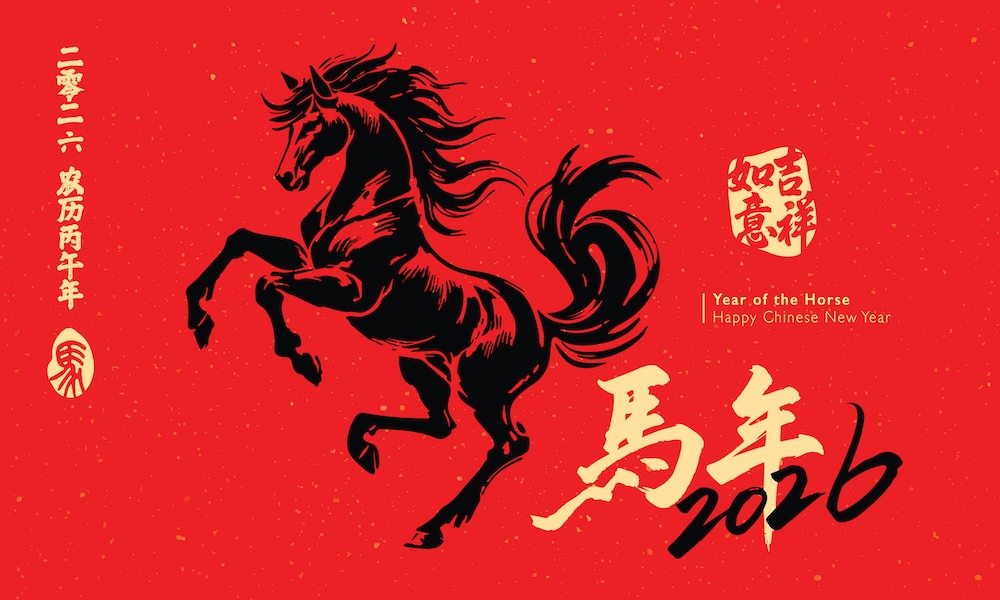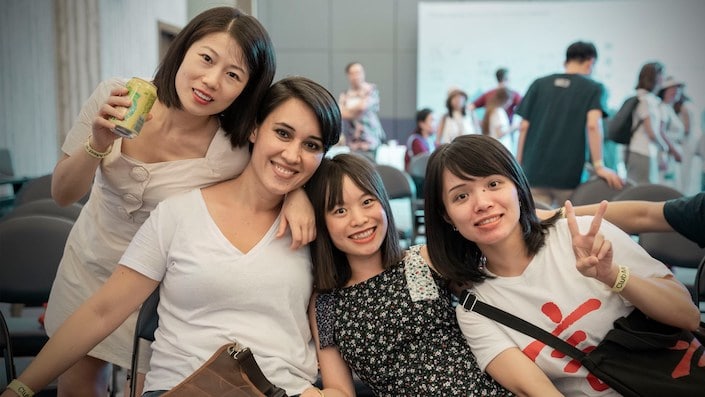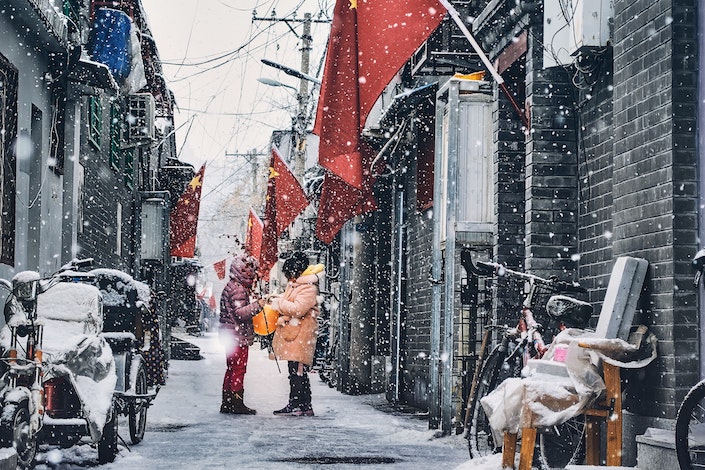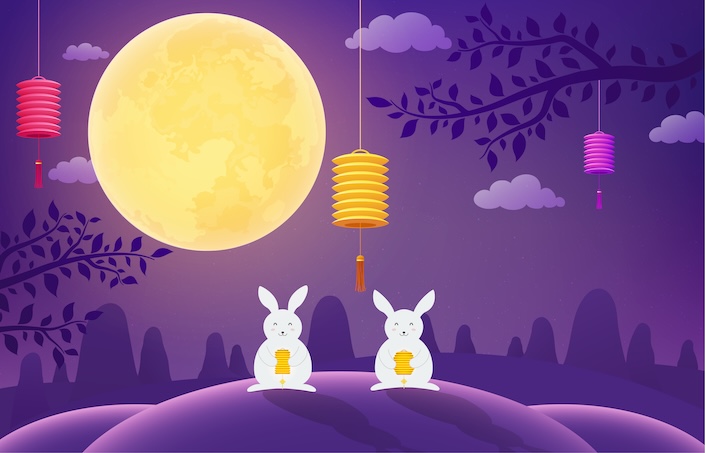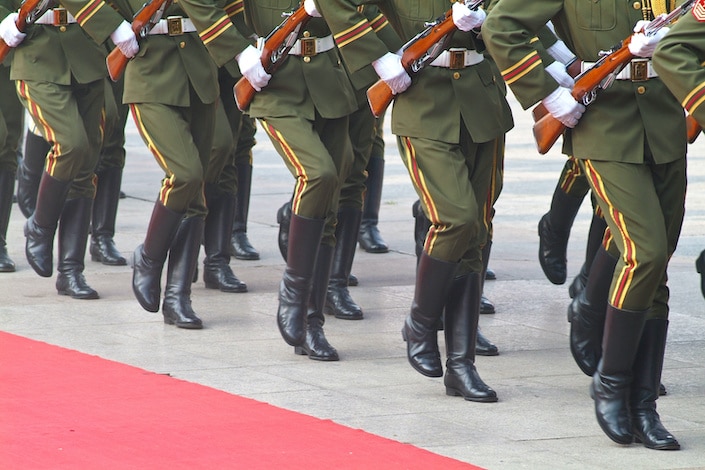What is Chinese Valentine's Day and how is it celebrated?


Learn Chinese in China or on Zoom and gain fluency in Chinese!
Join CLI and learn Chinese with your personal team of Mandarin teachers online or in person at the CLI Center in Guilin, China.


Table of Contents
What is Chinese Valentine’s Day?
Chinese Valentine’s Day (七夕节 Qīxìjié) is celebrated on the 7th day of the 7th month of the Chinese lunar calendar. Also called Qixi Festival (literally: “Evening of Sevens Festival”), this unique celebration of love is deeply rooted in Chinese folklore and is based on the romantic legend of Zhinü (織女 Zhīnǚ) and Niulang (牛郎 Niúláng).


Although not an official Chinese holiday, Qixi has over 2,000 years of history and is widely celebrated by couples throughout China. It even has its own respective versions in Japan and Korea.
The Story of the Qixi Festival: The Cowherd and the Weaver Girl
According to legend, Zhinü, represented by the star Vega, was one of the daughters of the Jade Emperor. Bored with her mundane life in heaven, Zhinü descended to earth and defied the rules of heaven by falling in love with the mortal Niulang, represented by Altair, the brightest star in the constellation of Aquila.
Zhinü’s mother, the Goddess of Heaven, soon discovered that Zhinü had married a mortal and promptly sent soldiers to retrieve her. The soldiers made quick work of their assignment and, tragically, the lovers were separated.


Lovers separated by the Milky Way reunite once a year on the Magpie Bridge—Qixi Festival’s timeless tale of love and longing.
In the face of his devastating loss, Zhinü’s mortal husband Niulang carried their two children to heaven in search of his beloved wife. Yet the Goddess of Heaven, ever the controlling mother, quickly learned of Niulang’s arrival and created a tremendous river—the Milky Way itself—between him and Zhinü to separate them for eternity.
Moved by the couple’s love, on the 7th day of the 7th lunar month, a flock of beautiful magpies formed a bridge over the great celestial river so that Niulang and Zhinü could meet on what came to be known as the “Magpie Bridge.”


Niúláng (牛郎) and Zhīnǚ (织女) reunite once a year on the Magpie Bridge (鹊桥, Quèqiáo), inspiring the romance of Chinese Valentine’s Day (七夕节, Qīxī Jié).
Witnessing this most romantic scene unfold—and to the delight of lovers worldwide—the Goddess of Heaven underwent a dramatic change of heart! She thus decided to allow the lovers to meet on the Magpie Bridge each year on the 7th day of the 7th lunar month forevermore.
When is Chinese Valentine’s Day on the Gregorian calendar?
In 2021, Qixi Festival will fall on August 14 on the Gregorian calendar. In 2022, it will be celebrated on August 5.
How is 七夕节 (Qīxìjié) Celebrated in China?
The Chinese Valentine’s Day is a time for couples to express their love, which they usually do with an array of elaborate gifts and gestures. Like any romantic holiday, couples spend time together, enjoy a nice dinner, exchange gifts, go to the cinema, etc. Qixi Festival brings an air of romanticism to the streets of China, with couples gazing into the night sky in search of the stars Vega and Altair.
Qixi is a time to bake and eat 巧果 (qiǎoguǒ), a type of sweet pastry. This is because the character 巧 (qiǎo) in 巧果 sounds very similar to 桥 (qiáo), which means bridge, thus symbolizing the celestial Magpie Bridge! 巧 can also mean “skillful,” so by eating these little sweets women can become 心灵手巧 (xīnlíng shǒuqiǎo)—clever and skillful. Traditionally, women also pray to Zhinü for wisdom, a good husband, and a happy life.


巧果 (qiǎoguǒ), a special type of sweet pastry, is a popular treat on Chinese Valentine's day.
Other Romantic Holidays in China
In addition to Qixi, there are a few other romantic holidays celebrated each year in China:
February 14: Valentine's Day (情人节 Qíngrénjié)
Valentine’s Day is mainly popular amongst younger generations as it is an import from the West, and it is celebrated a bit differently in China. Usually, women gift chocolate to their partners to show their appreciation and love. Men are then expected to return the favor one month later, as we’ll see below.


Valentine's Day (情人节, Qíngrénjié) is popular among younger generations in China, where women typically gift chocolate to their partners as a gesture of love.
March 14: White Valentine’s Day (白色情人节 Báisè Qíngrénjié)
On this day, men are expected to reciprocate the gifts received on February 14th and present their partners with white chocolates. They are also expected to buy gifts that are greater in value than those received from their significant other the previous month.
Although White Valentine’s Day was originally created by the confectionery industry in Japan in the 1970s, it soon became very popular throughout East Asia.
May 20: 520 Festival (五二零节 Wǔ'èrlíngjié)
Thanks to the large number of homophones in Chinese, a new phenomenon of using numbers to replace internet slang has emerged which consequently gave birth to the “520 Festival.”
The numbers “520” (五二零 wǔ èr líng) sound like “I love you” (我爱你 wǒ ài nǐ) in Chinese. Therefore, May 20th has become yet another Chinese Valentine's Day! Although not as popular as the Qixi Festival, it is still a day for couples to exchange love notes, money-filled red envelopes, and small gifts.


May 20: 520 Festival (五二零节, Wǔ’èrlíngjié) is a modern Chinese Valentine's Day, as "520" (五二零, wǔ èr líng) sounds like "I love you" (我爱你, wǒ ài nǐ), making it a day for couples to exchange love notes and gifts.
But singles fret not! There is actually a holiday for singles in China. In fact, Singles' Day is so popular that it now ranks as the biggest 24-hour shopping event in the world!
Although it's no longer considered a romantic holiday today, the Lantern Festival was also associated with love and romance in ancient China and is sometimes referred to as the "real" traditional Chinese Valentine's Day.
Now that you know the basics about romantic holidays in China, why not brush up on your Chinese vocabulary? The first step to meeting someone new is saying "hello," so check out our list of 12 ways to say "hi" in Chinese.
Of course, the best way to improve your Chinese is to engage in full language immersion. We hope to see you someday in Guilin to learn Chinese in China!
Chinese Vocabulary Related to China's Romantic Holidays
| Chinese | Pinyin | English |
|---|---|---|
| 爱情 | àiqíng | love |
| 谈恋爱 | tán liàn'ài | to date |
| 订婚 | dìnghūn | to get engaged |
| 结婚 | jiéhūn | to marry |
| 情侣 | qínglǚ | lovers |
| 鲜花 | xiānhuā | fresh flowers |
| 礼物 | lǐwù | gift |
| 蠋光晚餐 | zhú guāng wǎncān | candle lit dinner |
| 调情 | tiáoqíng | to flirt |
| 帅哥 | shuàigē | handsome guy |
| 美女 | měinǚ | beautiful girl |
| 男朋友 | nánpéngyǒu | boyfriend |
| 女朋友 | nǚpéngyǒu | girlfriend |
| 暗恋 | ànliàn | to have a crush; to like someone in secret |
| 告白 | gàobái | to confess |
| 花心 | huāxīn | fickle; unfaithful |
| 花花公子 | huāhuā gōngzǐ | playboy |
| 约会 | yuēhuì | (go on a) date |
| 网恋 | wǎngliàn | online dating |
| 来电 | láidiàn | to have chemistry with someone |
| 吃醋 | chīcù | to be jealous |
| 心碎 | xīn suì | heartbreak |
| 幸福 | xìngfú | happiness |
| 七夕节 | Qīxìjié | Qixi Festival; Chinese Valentine’s Day |
| 情人节 | Qíngrénjié | Valentine's Day (international) |
| 白色情人节 | Báisè Qíngrénjié | White Valentine’s Day |
| 五二零节 | Wǔ'èrlíngjié | 520 Festival |


Tania Yeromiyan is the Marketing Manager at the Chinese Language Institute (CLI). She holds a BA in Arabic and Chinese with First Class Honours from the University of Leeds, where she spent two years studying abroad in Taiwan and Egypt. Tania studied Beijing Opera at the Shanghai Theatre Academy and placed third in the UK's 14th "Chinese Bridge" Language Proficiency Competition. Before her current role, she served as CLI's Admissions Manager for five years, working with thousands of students preparing to study Chinese in China. She is fluent in Chinese and travels to China annually.





